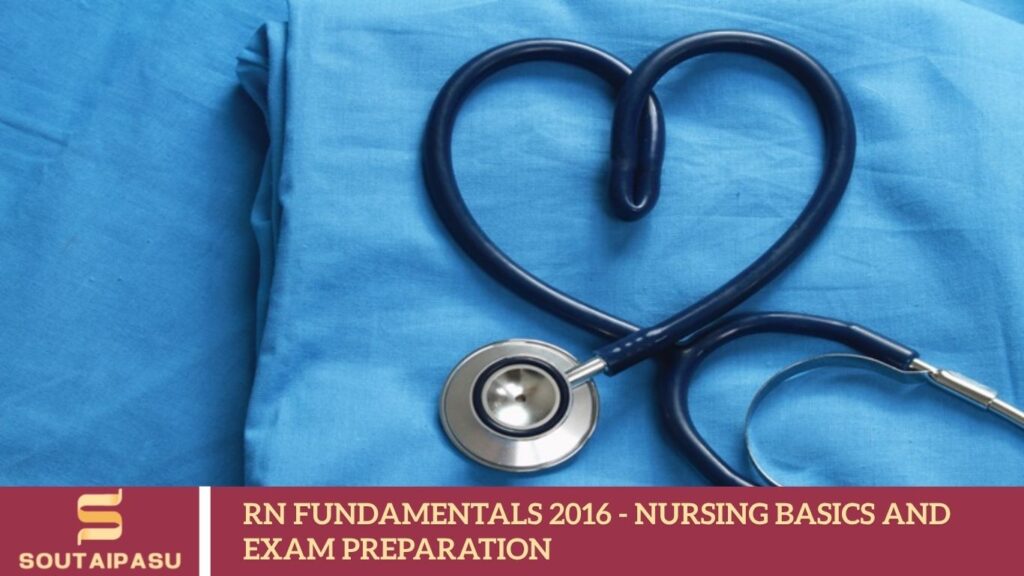The 2016 RN Fundamentals exam and study resources have played a crucial role in preparing aspiring nurses for their careers. Nursing students must demonstrate a strong understanding of essential concepts, including patient safety, basic care, infection control, pharmacology, and professional responsibility. This guide provides a comprehensive overview of the RN Fundamentals 2016, covering its structure, importance, key content areas, and preparation strategies to help students succeed.
What is RN Fundamentals 2016?
The RN Fundamentals 2016 typically refers to nursing school assessments, review materials, and standardized exams designed to evaluate a student’s understanding of core nursing concepts. These fundamentals are often assessed through standardized exams, such as the ATI (Assessment Technologies Institute) or HESI (Health Education Systems, Inc.), which measure readiness for nursing practice and the NCLEX exam.
Key areas tested include:
- Health promotion and disease prevention
- Basic patient care and comfort
- Infection prevention and safety
- Pharmacological and parenteral therapies
- Psychosocial integrity
- Management of care
RN Fundamentals 2016 Matters for Nursing Students
The RN Fundamentals 2016 exam is more than just a school requirement—it builds the foundation for clinical success. Here’s why it is so important:
- Foundation of Nursing Knowledge – It covers the essential principles that every nurse needs before entering specialized areas of practice.
- NCLEX Preparation – The content closely aligns with the NCLEX-RN test plan, ensuring students are prepared for licensure exams.
- Clinical Readiness – Students gain confidence in applying theoretical knowledge to real-life clinical situations.
- Critical Thinking Development – The exam fosters decision-making skills essential for patient safety and effective care.
RN Fundamentals 2016 Exam Structure
The exam usually consists of multiple-choice questions, alternate-format questions, and case studies. Most assessments evaluate not just memorization but also application of knowledge in realistic nursing scenarios.
Exam Features:
- Time Limit: Usually 1–3 hours, depending on the testing institution.
- Number of Questions: Around 60–90 questions.
- Question Types:
- Multiple-choice
- Select all that apply.
- Fill-in-the-blank (calculation-based)
- Ordered response (steps in a procedure)
- Image-based or chart interpretation
Core Content Areas of RN Fundamentals 2016
Basic Patient Care and Comfort
- Assisting with activities of daily living (ADLs)
- Hygiene, nutrition, and mobility support
- Pain management techniques
Safety and Infection Control
- Proper hand hygiene and PPE usage
- Isolation precautions
- Safe medication administration
- Preventing patient falls and injuries.
Pharmacology Basics
- Common drug classifications
- Dosage calculations
- Safe medication practices
- Monitoring for adverse effects
Health Promotion and Maintenance
- Patient education and health screenings
- Growth and developmental milestones
- Disease prevention strategies
Psychosocial Integrity
- Supporting mental health needs
- Communication and therapeutic techniques
- Managing stress and grief in patients
Management of Care
- Delegation and prioritization
- Legal and ethical considerations
- Patient rights and advocacy
How to Prepare for RN Fundamentals 2016
Review Official Study Materials
Most nursing programs provide review guides, practice exams, and textbooks tailored to RN Fundamentals 2016. Ensure that you go through them systematically.
Use Practice Exams
Taking practice tests helps you:
- Identify weak areas
- Get comfortable with question formats.
- Improve time management
Create a Study Schedule
Divide topics into manageable chunks. For example:
- Week 1: Infection control and safety
- Week 2: Pharmacology basics
- Week 3: Patient comfort and ADLs
- Week 4: Review and practice exams
Focus on NCLEX-style Questions
Since the RN Fundamentals exam mirrors NCLEX testing methods, practicing select-all-that-apply and case-based questions builds exam stamina and confidence.
Join Study Groups
A collaborative study allows students to discuss difficult topics, quiz each other, and share resources for better understanding.
Resources for RN Fundamentals 2016
Here are some recommended resources for preparation:
- ATI RN Fundamentals Study Guide 2016 – Comprehensive review material used in many nursing schools.
- Saunders Comprehensive Review for the NCLEX-RN – Popular resource with practice questions and rationales.
- Quizlet Flashcards (RN Fundamentals 2016) – Helpful for quick memorization of key terms and concepts.
- HESI Fundamentals Practice Tests – Provide realistic exam practice.
- Nursing School Textbooks – Such as Fundamentals of Nursing by Potter and Perry.
Frequently Asked Questions
What is RN Fundamentals 2016?
RN Fundamentals 2016 refers to the essential nursing concepts and exams (such as ATI or HESI) that assess a student’s knowledge in areas including patient care, safety, pharmacology, and care management.
Why is the RN Fundamentals 2016 exam important?
It evaluates a nursing student’s understanding of core principles, prepares them for the NCLEX-RN, and ensures they are ready for clinical practice.
How many questions are on the RN Fundamentals 2016 exam?
Most exams include 60–90 questions, depending on the program, covering multiple-choice, select-all-that-apply, dosage calculations, and case-based scenarios.
What score do I need to pass RN Fundamentals 2016?
Passing scores vary by nursing school, but students typically need to achieve a score of around 70–75% to pass successfully.
How should I prepare for RN Fundamentals 2016?
Utilize official study guides, practice NCLEX-style questions, create a study schedule, and concentrate on areas of weakness. Study groups and flashcards also help with memorization.
Is RN Fundamentals 2016 the same as the NCLEX?
No, but it mirrors NCLEX-style questions and is designed to prepare students for the NCLEX-RN by building a foundational knowledge base in nursing.
Conclusion
RN Fundamentals 2016 serves as the cornerstone of nursing education, equipping students with the essential knowledge and skills needed for safe and effective patient care. By covering key areas such as infection control, pharmacology, patient safety, and basic nursing interventions, it prepares students not only for classroom success but also for real-world clinical practice.
For those working toward the NCLEX-RN or building a nursing career, mastering these fundamentals is crucial. With consistent study, practice exams, and effective time management, students can approach the RN Fundamentals 2016 exam with confidence. More importantly, the lessons learned through this foundation stay with nurses throughout their careers, ensuring quality care, professional growth, and patient safety.

